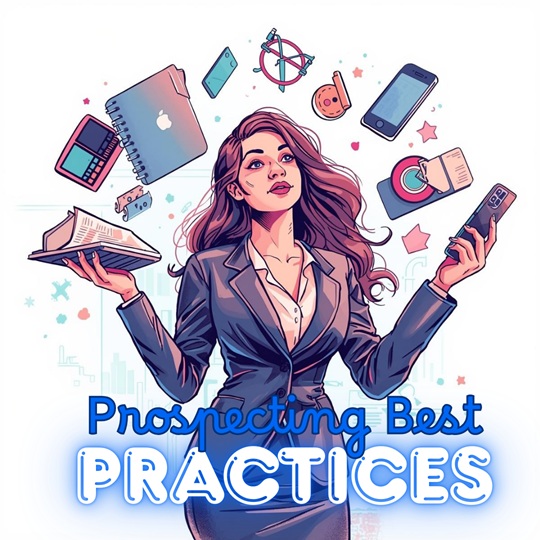Imagine having a sales team of seasoned professionals seamlessly working on your business's growth, each equipped with a specialized set of skills meticulously tailored to your industry's nuances. This, in essence, is the concept of sales outsourcing – a strategic collaboration that allows businesses to harness external expertise to drive sales performance.
Companies do sales outsourcing to drive sales results quickly. There is no doubt outsourcing sales teams have both pros and cons. And since it’s more difficult now than ever to find employees to fill empty roles, outsourcing has become the optimum choice for lots of businesses.
If you are looking to outsource your sales team, there is no doubt that you will have lots of questions about the process. Before you decide, you must understand the consequences that come with sales outsourcing.
In this article, we’ll cover everything you need to know about the decision to outsource sales and what it means for your company.
Sales Outsourcing
Sales outsourcing is akin to assembling a dream team of sales experts without the overhead of recruiting, training, and managing an in-house force. It involves delegating specific sales functions, such as lead generation, appointment setting, or even complete sales processes, to a third-party provider. This not only provides a dedicated focus on your sales objectives but also taps into the prowess of professionals who breathe and live the art of selling.
In essence, sales outsourcing is a strategic move that empowers business owners to leverage external expertise, streamline operations, and achieve sales goals more efficiently, ultimately contributing to the overall success and sustainability of the business.
Why Outsource Sales Teams
Businesses can elevate their sales game and unlock unparalleled growth by embracing the game-changing strategy of sales outsourcing. Imagine a dedicated team of seasoned professionals tirelessly working to drive revenue, leaving time free to focus on thing – building a business. With expertise, efficiency, and a proven track record, sales outsourcing isn't just a service; it's can be a competitive advantage.
Imagine a day where your business effortlessly expands its reach, captures new markets, and accelerates revenue growth. Sales outsourcing is the strategic key to turning this vision into reality. By entrusting the sales processes to seasoned experts, you not only reduce costs but also tap into a wealth of experience, dedication, and cutting-edge strategies. Discover the untapped potential for your business.
Sales Outsourcing Pros:
The beauty of sales outsourcing lies in its ability to streamline operations, optimize costs, and elevate your business to new heights. By entrusting specialized tasks to experts in the field, companies can stay agile, adapt to market trends swiftly, and ensure that their sales strategies are executed with precision and finesse. In essence, sales outsourcing is the strategic alliance that propels businesses toward unparalleled sales success, allowing them to navigate the competitive landscape with confidence and competence.
Outsourced teams are well-seasoned.
One of the greatest pros of outsourcing is that you can hire salespeople with more experience than what you have with in-house talent. This would increase revenue because experienced salespeople can sell more of your product at higher price points than any of your in-house team.
- It’s far easier to grow your sales team.
- It's also much easier to scale your sales team. When you outsource, you don't have to hire more people. You also give your people more time to perform other money-making work.
- It’s typically cheaper to outsource.
Why is it cheaper to outsource than to hire full-time staff? Hiring requires an extensive recruiting process, salary negotiation, and training. New in-house employees typically spend their first year settling in and learning about the company. By contrast, with an outsourced SDR, you don’t have to waste any time or money on this “warm-up” period.
You can invest time and resources back into your business.
Lastly, by outsourcing your sales efforts, you can invest in other areas of your business and provide better benefits for your full-time employees (which only increases retention rates). You'll be able to reach more customers and focus on other parts of your business that need attention because you don't have to worry about managing a physical location or purchasing any office supplies.
Sales Outsourcing Cons:
While there are numerous benefits to outsourcing your sales teams, there are also some drawbacks.
Miscommunication is common.
One major problem is communication issues (i.e. billing errors, payment disputes) between the customer and the outsourced agent because the latter doesn’t know or understand the internal processes of your business.
The separation between your organization and outsourced employees can also make it difficult for the outsourced talent questions customers may have.
To avoid this, you'll need to set up systems for making sure everyone knows what's happening on both sides of the equation. This way no one gets left out!
You lose control over your brand’s voice.
Additionally, many businesses choose not to outsource because of valid fears that they’ll lose control over brand messaging when customers speak to outside reps.
To be frank, the reality is, you will lose some control over the quality of your product or service when you outsource. That’s just the harsh reality. But you have to decide for yourself if the benefits of outsourcing outweigh the inevitable change in quality.
You don’t get to manage the team directly.
You won't be able to see results from the outsourced sales team immediately. It may take some time for them to get up to speed and start making sales, so you need to keep a close eye on their progress.
Outsourcing could make your clients uncomfortable.
Your clients might be uncomfortable with a third party contacting them for sales purposes. To avoid alienating your customer base, make sure you’re clear about what communications are from your company, and which ones aren’t. Although it’s rarely an issue, it’s better to be safe than sorry with these extra precautions.
Regardless If Outsourcing or Not
Regardless of whether you outsource or not, you need…
- To get a CRM like Salesforce or Hubspot (Hubspot outsources themselves!).
This way you can track communications between reps and prospects/customers. - Create an Internal ROI Tracking System.
This way you understand the value your sales team is driving, and when you can reinvest into the sales process. - Sales Software. You need contact data for your prospects in either case!
Seamless will help keep lines of communication open. Even if you outsource your sales team, you can still contact your customers and prospects with Seamless. Learn more about why this sales intelligence is so crucial to delivering relevant messaging and driving sales results. - A mass email marketing platform like Active Campaign or Marketing Cloud.
In any case, you need to contact your users regularly. DO NOT leave all contact up to your sales team - To create a scalable/transferable system.
I can’t say it enough, document as much of the sales process as you can. Outsourced or not, the team is still selling the same product. Keep as many notes, insights, and clues from your team as you can! This could be what time of day prospects are most likely to buy, for example, but be thorough in your documentation.
10 Situations to Outsources Sales Team
Outsourcing sales teams can be beneficial for a variety of businesses, depending on their specific needs, goals, and circumstances. Here are some scenarios in which businesses might consider outsourcing their sales teams:
1. Small and Medium-sized Enterprises (SMEs):
SMEs with limited resources may find it cost-effective to outsource sales rather than hiring and training an in-house team.
Outsourcing allows SMEs to access specialized skills and expertise without the overhead costs associated with maintaining a full sales department.
2. Startups:
Startups often face resource constraints and need to focus on their core competencies. Outsourcing sales allows them to quickly establish a sales presence without the burden of recruiting and training.
3. Companies Expanding Internationally:
Businesses looking to expand into new markets, especially internationally, can benefit from outsourcing. Outsourced sales teams with local expertise can navigate cultural nuances and market intricacies more effectively.
4. Companies Going Through Rapid Growth:
During periods of rapid growth, businesses may need to scale their sales efforts quickly. Outsourcing provides a flexible and scalable solution without the delays associated with hiring and training an internal team.
5. Companies with Seasonal Demand:
Businesses experiencing seasonal fluctuations in demand may find it more cost-effective to outsource sales during peak periods and scale back during slower times.
6. Companies Requiring Specialized Skills:
If a business requires specialized skills or expertise that may not be readily available in-house, outsourcing can be a strategic solution. This is particularly relevant in industries with complex or technical sales processes.
7. Businesses Facing Budget Constraints:
Companies with budget constraints can benefit from the cost savings associated with outsourcing. Instead of investing in infrastructure and personnel, they can allocate resources more efficiently.
8. Businesses Wanting to Focus on Core Competencies:
Some businesses prefer to concentrate on their core competencies, such as product development or service delivery. Outsourcing sales allows them to delegate sales activities to professionals, freeing up internal resources.
9. Businesses Seeking Faster Time-to-Market:
Businesses aiming for a swift entry into the market or rapid product launches can leverage outsourcing to expedite the sales process and reduce time-to-market.
10. Businesses in Need of Flexibility:
Companies that require flexibility in their sales operations, such as the ability to quickly adapt to changing market conditions, can benefit from the agility that comes with outsourcing.
While outsourcing sales teams can be advantageous for many businesses, it's essential for each organization to carefully assess its specific needs, goals, and budget constraints before making a decision. Additionally, choosing the right outsourcing partner with a proven track record and aligned values is crucial for success.
Outsourcing Sales Teams Recap
The beauty of sales outsourcing lies in its ability to streamline operations, optimize costs, and elevate your business to new heights. By entrusting specialized tasks to experts in the field, companies can stay agile, adapt to market trends swiftly, and ensure that their sales strategies are executed with precision and finesse. In essence, sales outsourcing is the strategic alliance that propels businesses toward unparalleled sales success, allowing them to navigate the competitive landscape with confidence and competence.
- It’s typically cheaper to outsource your sales team
- However, outsourcing comes at the risk of miscommunication and loss of control over brand messaging
- If you outsource or not, you still need essential tools like a reliable CRM and sales software
So, is outsourcing your sales team a good idea?
The honest answer is… "It depends."
That may sound like a cop-out, but outsourcing truly depends on the needs of your company.
Whether you decide to outsource or not, never forget that sales teams are one of the most important resources for any company. So take your time with this decision.
And if you decide to move forward and outsource your sales team, check out some of the best outsourcing agencies here.
Related: How to build a strong pipeline

















